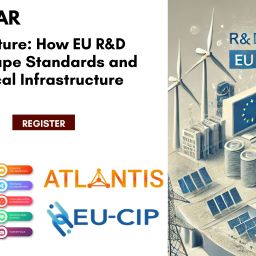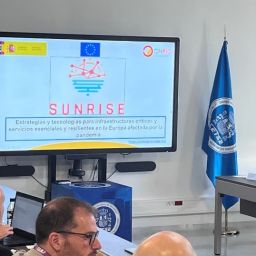
SUNRISE CRITICAL INFRASTRUCTURE SERIES
Authentication and authorization are essential and security-critical tasks in both the digital and physical world. They ensure that entities are who they claim to be and enforce access control to resources like digital services or physical spaces. A central concept is that of a digital identity, which is a collection of attributes (e.g., name, age, nationality, gender) representing a real-world entity in the digital realm.
In the digital world, a notable shift is currently taken place from centralized identity provisioning systems – e.g., provided by major social networks or search engine providers – towards decentralized identity systems. A leading concept in this space is self-sovereign identity (SSI), where users gather certified attributes (known as verifiable credentials (VC)) from various sources and present subsets of these credentials.
In the context of SUNRISE, we are mainly concerned about applying this concept in the physical world, to protect citizens and critical infrastructures, e.g., in the case of a pandemic. Specifically, we are aiming to develop solutions for a next-generation vaccination validation system, in order to ensure that only healthy and vaccinated/tested users can enter a facility or public space. The system should give the verifier cryptographically provable guarantees that a user holds a valid vaccination certificate, while at the same time minimizing the amount of data the user is transferring to the verifier. Specifically, taking the past Covid-19 pandemic as an example, the user should only show that they hold an unexpired vaccination or test certificate according to the defined access policy – without having to reveal which type of certificate they own, or which type of test of vaccination was being used.
SUNRISE contributes to the development of such technologies in multiple directions.
- On the theoretical level, we have been working on so-called issuer-hiding multi-authority anonymous credential systems[1]. Issuer hiding means that users do not only have control over which data they reveal, but they may also hide who issued their certificate, as long as it was done by an eligible party. In the case of the vaccination system, this means that the verifier will not learn who issued the vaccination or test certificate – a crucial feature hardly considered in the academic literature before, as by simply looking at the issuer (e.g., a testing center) one would already learn the type of certificate. Multi-authority covers the case where users need to present independent credentials from different issuers, e.g., of a vaccination certificate and an identity document. This feature allows for a streamlined and compact presentation of multiple credentials, demonstrating possession of attributes more efficiently than presenting separate credentials for each issuer. We achieve this through the use of aggregate signatures, which enable the private and secure aggregation of credentials.
- On the applied side, researchers of the project have continued the development of reference implementations[2] in close collaboration with related projects in the field, in order to push forward the availability and practicability of anonymous credentials outside the scientific domain, and to make them easier usable also for application developers and practitioners.
- Finally, we are actively contributing to the standardization of anonymous credentials, e.g., in ISO/IEC, thereby complementing ongoing efforts, e.g., by W3C[3] or initiatives such as Gaia-X[4] and the European Blockchain Services Infrastructure (EBSI)[5] supporting this decentralized approach.
Overall, SUNRISE is contributing to pushing forward privacy-enhancing technologies, inspired by lessons learned during the past pandemic. However, we expect that our results will also contribute to the academic and practical advancement of this technology also beyond the specific application case, in both the physical and digital worlds.
[1]Omid Mir, Balthazar Bauer, Scott Griffy, Anna Lysyanskaya, Daniel Slamanig: Aggregate Signatures with Versatile Randomization and Issuer-Hiding Multi-Authority Anonymous Credentials. CCS 2023: 30-44
[2]Jesús García Rodríguez, Stephan Krenn, Jorge Bernal Bernabé, Antonio F. Skarmeta: Beyond selective disclosure: Extending distributed p-ABC implementations by commit-and-prove techniques. Comput. Networks 248: 110498 (2024)
[3]https://www.w3.org/TR/vc-data-model/
[5]https://ec.europa.eu/digital-building-blocks/wikis/display/EBSI/Home
Written by: Omid Mir, Stephan Krenn (AIT, Austrian Institute of Technology)
















